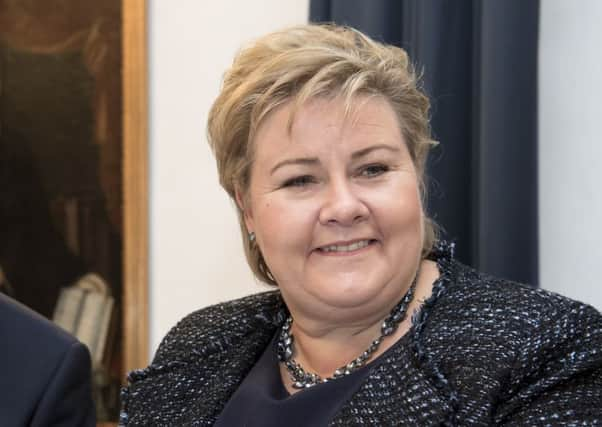Britain faces '˜very hard Brexit' over lack of negotiation skills


Erna Solberg expressed doubts about the UK’s ability to cut a deal on its own after acting collectively as a member of the EU for more than four decades.
“And we do feel that sometimes when we are discussing with Britain, that their speed is limited by the fact that it is such a long time since they have negotiated.
Advertisement
Hide AdAdvertisement
Hide Ad“I fear a very hard Brexit, but I hope we will find a better solution,” she told Reuters.
Ms Solberg said it would be very difficult for the UK to accept the EU’s core “four freedoms” on the free movement of goods, capital, people and services, if it did not have a vote in the EU Council.
Norway is not a member of the EU but is within the Single Market, meaning it has to accept free movement of labour.
The lack of top level negotiating talent in London was highlighted by outgoing British ambassador to the EU, Sir Ivan Rogers, in his explosive resignation letter.
He stated: “Serious multilateral negotiating experience is in short supply in Whitehall, and that is not the case in the (European) Commission or in the Council.”
Downing Street has insisted that Sir Ivan’s replacement, Sir Tim Barrow, is a “seasoned and tough negotiator” who will help the Government make a success of Brexit.
Meanwhile, outgoing European Parliament president Martin Schulz admitted some EU figures are detached from ordinary lives.
He told the Europa newspaper group: “Some people in the apparatuses of Brussels are indeed far decoupled from the reality which confronts people on a day-to-day basis.
Advertisement
Hide AdAdvertisement
Hide Ad“Only taking notice of Brussels can make you believe that Brussels life is the reality of people in Europe.”
Mr Schulz said Brussels is still mourning the Brexit vote, and the bloc was “treading water” against the rise of populist movements across Europe.